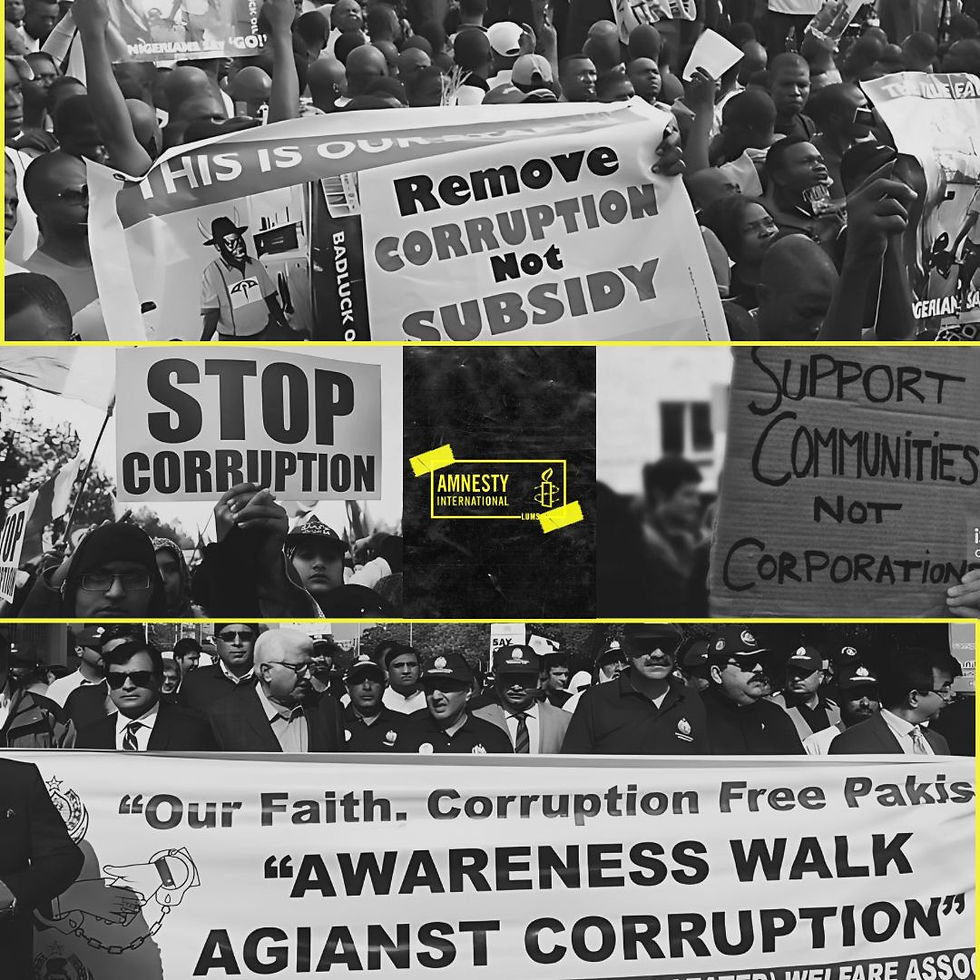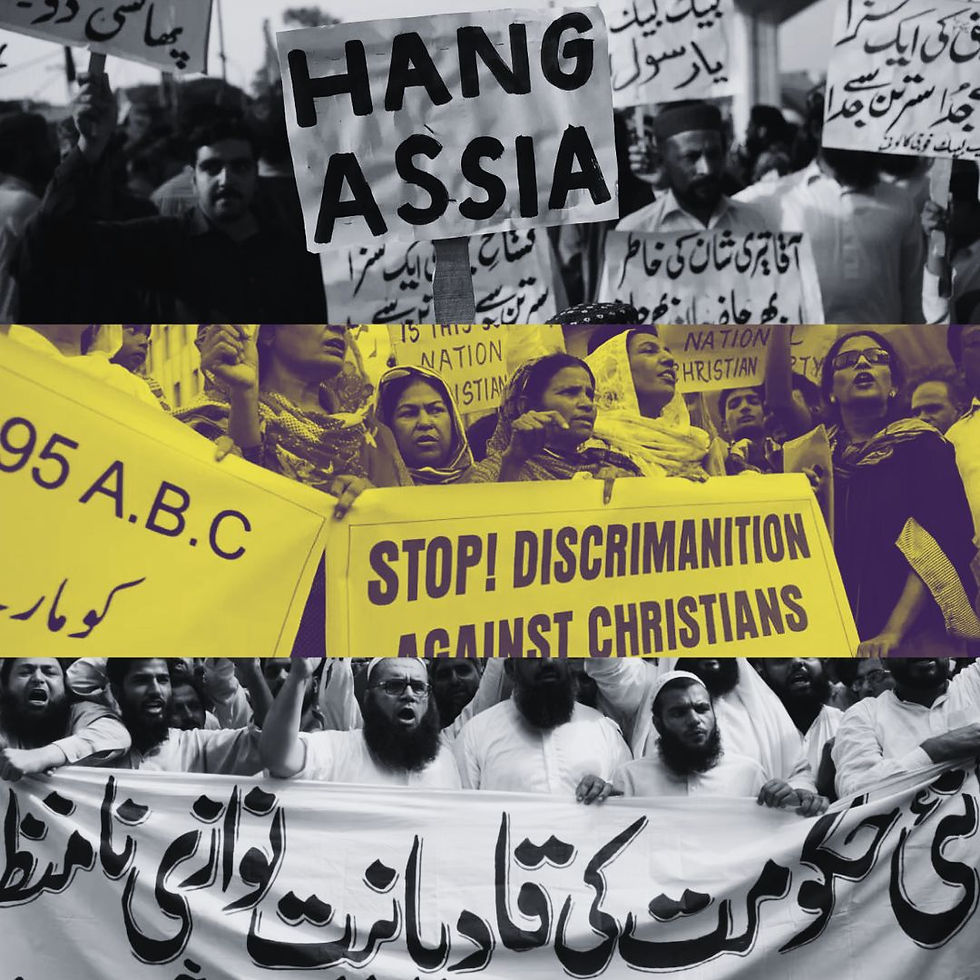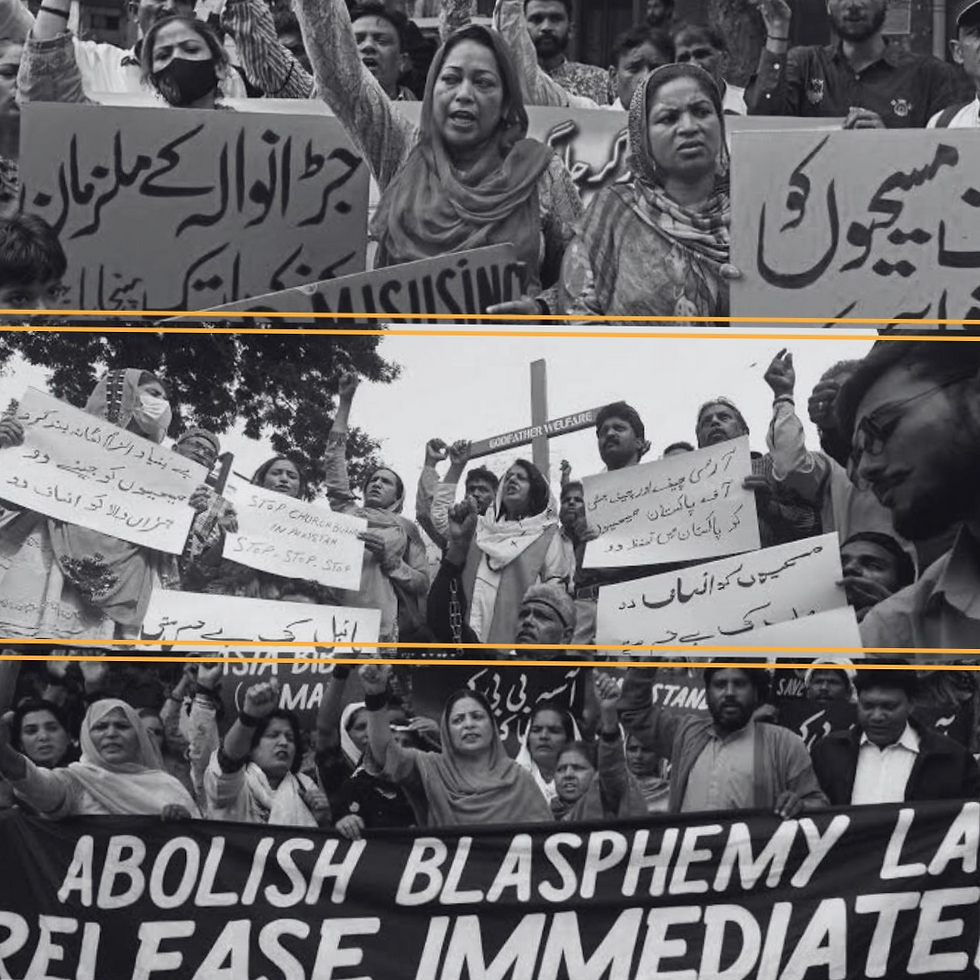Dark Reality of Corruption: Uncovering its Impact on Human Rights
- Huzayfah Abid
- Aug 18, 2024
- 3 min read
By Huzayfah Abid

Corruption has been a pervasive issue throughout human history and is still a significant concern for most countries, especially developing ones. The very nature of corruption involves the suffering of disadvantaged groups, especially lower-income women and minorities. This alarming issue and its impact on human rights must be brought to the forefront of the public eye to build a world free of corruption.
Corruption is still not a concretely defined term. However, according to the UNODC, corruption abuses power for private gain. This post will cover the four dominant forms of corruption: bribery, embezzlement, fraud, and extortion.
Bribery
A bribe is an incentive or reward promised, offered, or given to improperly gain any commercial, contractual, regulatory, or personal advantage. According to Transparency, a global corruption watchdog, 16% of Asians have been involved in bribery to a public official. Bribery comes in many forms. It can be as simple as dodging a traffic fee or as severe as paying a political party for their presidential seat. Such an incident was observed recently in Sri Lanka, where Mr. Ratnayake tried to pay 30 million rupees to the secretary of his party, the ULPP, to confirm his seat as the presidential candidate. Bribery harms human rights by undermining the meritocratic system that is fundamental to democracy. It leads to better outcomes for those willing to pay rather than those most deserving.
Embezzlement
Embezzlement is financial fraud and a form of corruption that occurs when someone authorized with someone else’s money or property steals it—for example, diverting funds in a government department or private company, fabricating financial documents, or creating fake invoices. Embezzlement in a government context is directly stealing from the poor for your own personal gain. It is one of the most severe forms of corruption, and under the PPC Section 409, it can lead to imprisonment of up to 7 years. One famous example of embezzlement is the Hajj Corruption Scandal of 2010, where high-ranked government officials misdirected funds intended for Hajj operations, which led to substandard accommodation arrangements and inadequate logistical support for pilgrims. When funds are embezzled, it impacts those who are weakest in our society.
Fraud
Fraud involves deceitfully acquiring financial or other advantages (either directly or indirectly). It encompasses intentional and calculated deception to exploit a position of trust and authority. This can involve various forms of misconduct, such as failing to disclose information, theft, misleading statements, evading responsibilities, manipulating data, and other deceptive practices. When fraud occurs, particularly in public institutions or non-profits, it can erode trust in these entities. According to the Commonwealth Fraud Protection Centre, fraud not only financially impacts its victims but can also cause severe emotional damage. People affected by fraud against public bodies suffer from social problems such as loss of reputation, feelings of vulnerability, isolation, and insecurity. Fraud is one of the most common types of corruption in the world. A report by the ACFE found that in 2022, 47% of organizations experienced fraud in the past 12 months, up from 41% in 2020.
Extortion
Extortion involves harming, threatening, blackmailing, or using other forms of intimidation to obtain personal gain from an unsuspecting victim. According to the ACFE, 8% of fraud cases involve extortion. It can manifest in various contexts, such as organized crime, political corruption, and business transactions. Extortion violates human rights on a fundamental level, impairing the victim's right to free will and infringing on their personal safety. Moreover, in a society where extortion is rampant, trust in the law quickly vanishes, and people collectively lose faith in governing bodies.
Conclusion
Corruption in its various forms; bribery, embezzlement, fraud, and extortion - severely undermines human rights and societal stability. It disproportionately affects the most vulnerable populations, magnifies inequalities, and erodes trust in institutions. Addressing and combating corruption is essential for ensuring equitable access to resources and justice and fostering a more stable and just society. By highlighting these issues and advocating for systemic reforms, Amnesty aims to work towards a world where integrity and fairness prevail, safeguarding the fundamental rights of all individuals.





Kommentare